It’s the end of an era!
As a core part of its nature, Doctor Who is a show that’s always changing. From the departure of early companion and the Doctor’s granddaughter Susan Foreman, to the first regeneration scene, to the Last Great Time War and beyond, nothing stays the same in the TARDIS for long. That holds true behind the scenes as well. For the last seven years, Steven Moffat has held the reins of the sci-fi series as showrunner and headwriter. Now, this year’s Christmas special, he’s turning his sonic screwdriver over to Chris Chibnall. Bowing out alongside him is Peter Capaldi, the 12th Doctor, to make way for Jodie Jodie Whittaker, the first woman to play the role.
That’s a whole lotta change for the new year! So as this era of Doctor Who draws to a close, let’s take a look at the six series Moffat presided over and see how he did.
6. Trying Too Hard: Series 6
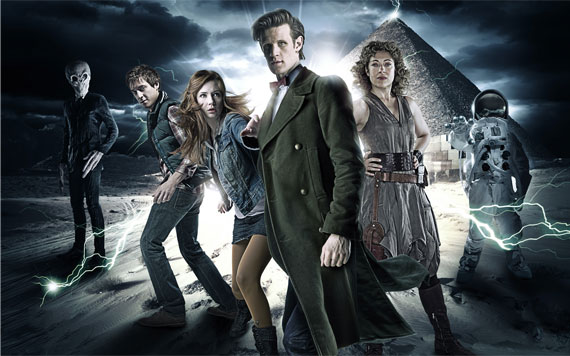
After Moffat stunningly crafted a superb Series 5, with Matt Smith bringing a mix of buoyancy and weariness to The Doctor, fans had high hopes for Series 6. And it started really strong too, with a scary new villain called The Silence, The Doctor’s impending death and a young girl regenerating. A strong first half ended on the stunning revelation that the time-traveling, mysterious River Song was actually the daughter of companions Amy Pond (Karen Gillan) and Rory Williams (Arthur Darvill). Where would the show go from here?
Unfortunately, the second half of the series twisted itself in knots with its efforts to prove the supreme cleverness of the plot (aka Moffat’s writing). While individual episodes still offered highlights, Series 6 tied itself too closely to the River Song storyline, turning her from a delightful conundrum to an overexposed romantic interest for The Doctor. When she’s willing to destroy all of time for her love for him, we’re supposed to find it charming. It’s not. Strong performances all around can’t save this one.
Highlights
“The Doctor’s Wife” – This excellent story, written by none other than Neil Gaiman, sees the TARDIS given human form, letting The Doctor finally talk to his oldest friend and companion. The plot has many creepy touches that you would expect from Gaiman. But it’s the tragic love between a Time Lord and his living ship that make this a must-watch.
“The Girl Who Waited” – When time-traveling, things can and will go wrong. You may expect adversaries that exist throughout history, but time itself can be the greatest threat. In this episode, a traveling snafu leaves Amy stranded on a planet for 36 years, while only seconds pass by for The Doctor and Rory. Playing both the young and old Amy, Gillan does some of her absolute best work here.
5. The Lead-Up to the 50th: Series 7
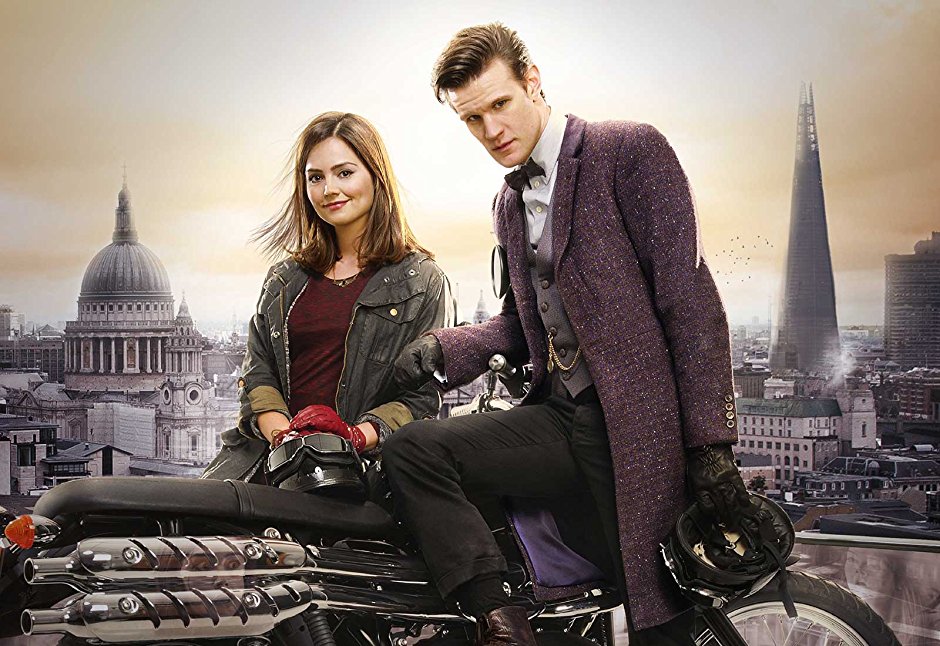
Matt Smith’s final season improved on the messy Series 6, splitting this go-around in half and creating two mini-arcs in the process. While the series opener wastes the Daleks and stupidly creates needless drama in Amy and Rory’s marriage, the next three episodes are fun and wonderfully set up the duo’s farewell. Sadly, their actual departure episode, “The Angels Take Manhattan,” is terrible, outside the heartbreaking goodbye between Amy and The Doctor.
On the second half, Clara is introduced, but not just as a companion. Nope, she’s another clever mystery that Moffat creates for The Doctor to solve. With Clara as a puzzle instead of a person, Coleman is stuck as a blank slate, with nothing memorable to show her acting chops. But the Big Bad for this arc, the Great Intelligence, is a breath of fresh air. And the finale leads nicely into the 50th Anniversary with the shocking appearance of John Hurt as The War Doctor.
Highlights
“A Town Called Mercy” – This Wild West throwback introduces a wicked cool cyborg gunslinger, out to kill his creator for turning him into this monstrous being. And The Doctor is tempted to let him do so, as he sees the scientist as no better than the Daleks or any other evil. It’s another glimpse at the dark side of the Time Lord’s personality, in the midst of a great Western setting.
“The Rings of Akhaten” – This ep’s setting is the Doctor Who equivalent of the Star Wars Mos Eisley Cantina. Throwing a ton of unique aliens on this planet creates a feast for the eyes. The storyline of a religious sacrifice to a living, parasitic sun is elevated by one of Smith’s strongest performances. His Doctor releases all the pain, weight and history of a millennium-long life in a show-stopping scene.
4. Lean and Mean: Series 8
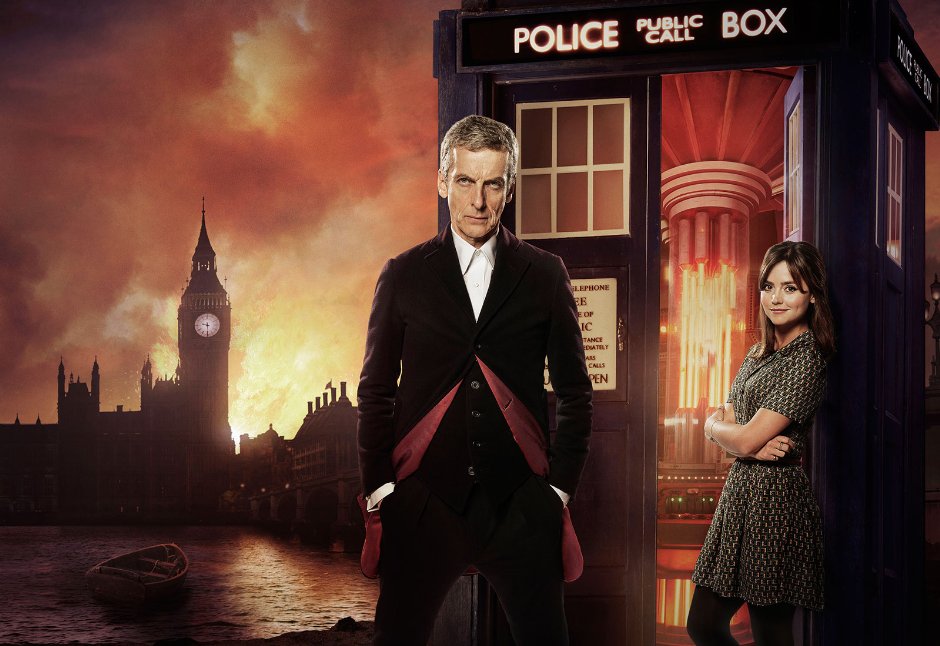
After two young Doctors in a row, Moffat shook things up with the casting of Peter Capaldi as The 12th Doctor. Besides their ages, this take on the Time Lord differed in his personality too. He was colder and more pragmatic, hiding his emotions further underneath the surface than any Doctor since the revival. But the balance was off, with his actions too often appearing cruel and insensitive. While Capaldi and Jenna Coleman (who played companion Clara), had a far better chemistry than Smith and Coleman, they were fighting against subpar stories.
While Doctor Who has never been a show that has problems with filler, there’s a lot of it here. Attempts at comedy, like “Robot of Sherwood,” fell flat, as did “message” episodes like “Kill the Moon” and “In the Forest of the Night.” Despite these flaws, the looser arc for this season led to some strong standalones. Plus, it had a deep, daring finale that found Clara dealing with the death of her boyfriend Danny Pink and The Doctor facing the return of his Time Lord nemesis and friend, Missy (AKA The Master).
Highlights
“Listen” – Dark, smart, scary and mind-bending, this episode is perhaps one of the most questioning and thoughtful in the show’s history. As Clara tries to make a relationship work with Danny, The Doctor keeps dragging her away to confront a creature with the ability to perfectly hide. Their adventure brings them through the childhoods of both Danny and The Doctor, and the fears that drive them.
“Flatline” – Leading up to this episode, it felt like “Flatline” would be decent filler. But it wound up being far better than that! With The Doctor trapped in a shrinking TARDIS, it’s up to Clara to take his place and investigate a series of deaths caused by two-dimensional beings. The humor is on-point, Coleman sharply flits between bravery and terror, and Capaldi gets his first major Doctor speech!
3. Capaldi’s Swan Song: Series 10
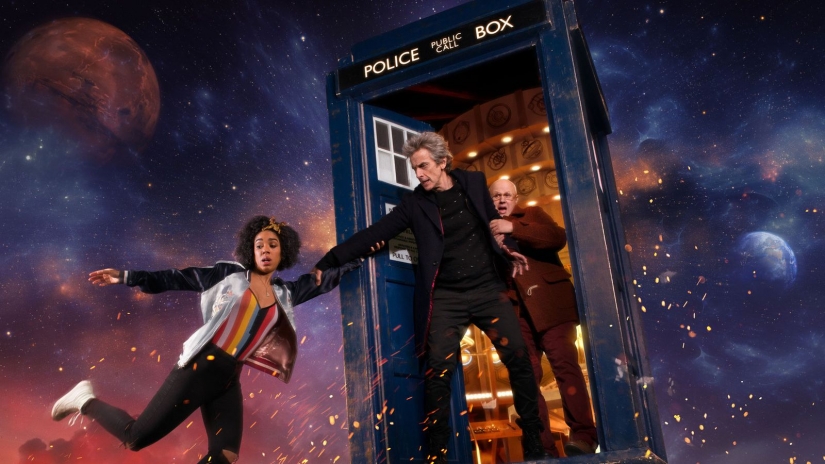
The last series for the 12th Doctor is one of the lightest on overarching storylines and additions to the mythology, making it a refreshing series of adventures. While Capaldi and Coleman were excellent together, Pearl Mackie brings a marvelous mix of empathy, warmth and excitement to the role of Bill Potts. She brings a crisp spin to the usual trials and tribulations of a new TARDIS passenger, enjoying the wonders of the universe but also unafraid to call The Doctor out when needed.
Capaldi plays his last episodes as the Time Lord by bringing a grizzled, veteran vibe to his words and actions. The Doctor starts the season at the peak of his powers, only to be met with some of his greatest challenges. Only the weak Monks trilogy that ends poorly brings the series down a bit. But it’s almost made up for with the thrilling two-part finale, which finds The Doctor and Bill confronting Missy, her Master previous incarnation and Mondasian Cyberman.
Highlights
“Thin Ice” – The scenery of the 1814 London Frost Fair brings a top-of-the-line backdrop for this story of a giant sea creature trapped under the Thames. But this episode really shines through its performances, as Bill is shocked and horrified at The Doctor’s pragmatism over the death of a boy. Later on, the two of them confront and punch back against the racism of that era.
“The Doctor Falls” – How can you beat an episode that has not one, but two versions of The Master? Michelle Gomez and John Simm have a blast playing off against each other. Capaldi gives an all-time highlight with his plea for doing what’s right. And Bill struggles with her transformation into a Cyberman. All of it culminates with the appearance of the First Doctor for this year’s Christmas special.
2. The Path to Gallifrey: Series 9
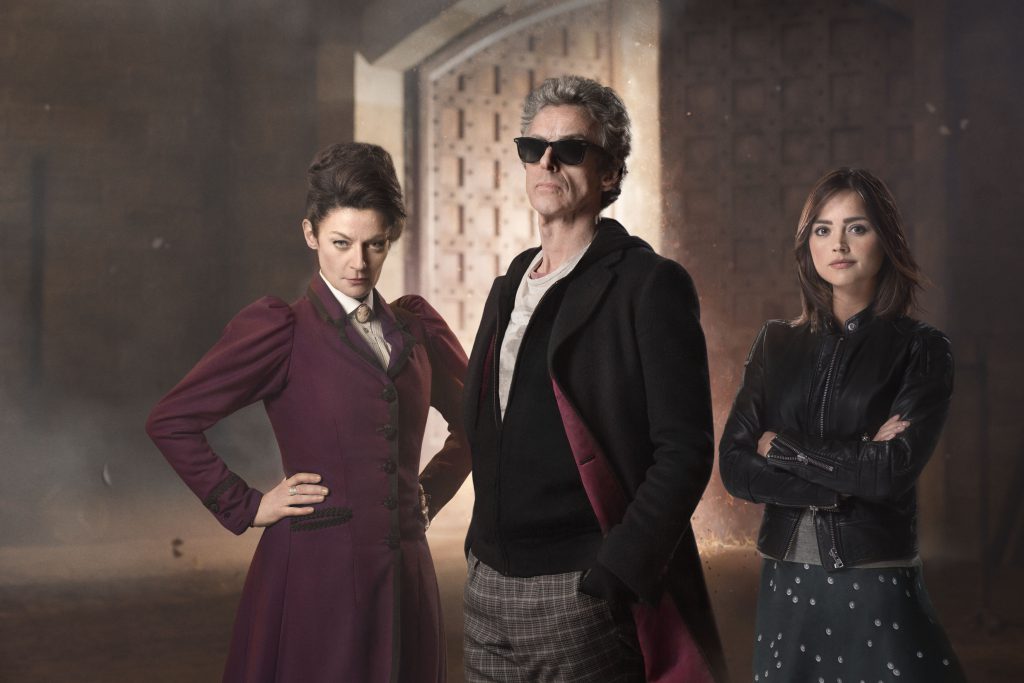
It feels like the cast and crew of Doctor Who must have realized that Series 8 was a missed opportunity. Series 9 is where they rectify that error. Everyone is firing on all cylinders here. Moffat brings together a mix of inventive plots and moments made for both new and long-term fans. An episode with The Doctor, the Daleks, Davos and Missy? Yep! How about a special guest turn by Maisie Williams? Sure! And of course, we have the long-awaited return of Gallifrey and the Time Lords.
But the true strength lies in how the stories wring every bit of pathos out of the script and the actors. Capaldi has no better moment as The Doctor than his speech against war in “The Zygon Inversion,” where he shares his pain of the horrors he’s witnessed. Coleman’s performance in “Face the Raven” moves from nearly reckless abandon to courage in the face of death. Even the weakest episodes get by without serious flaws. This is the best the 12th Doctor has to offer.
Highlights
“The Girl Who Died” – For most of its runtime, this episode is alright, elevated by Williams’ guest spot as Ashildr. But her death fending off the alien Mire sends The Doctor off into a crisis of faith, tired of losing people no matter what he tries. He uses alien tech to bring her back to life, but winds up making her immortal…and alone.
“Heaven Sent” – In its 50-plus years, there has never been an episode like this one. The Doctor, reeling from Clara’s death, is transported to a waterlocked castle and pursued by a veiled creature. By himself for most of the runtime, Capaldi puts on a masterclass performance as the damaged, heartbroken Time Lord trying to find a way out. The twist ending, explaining the enigma of the castle, remains Moffat’s finest moment as a writer.
1. Simply the Best: Series 5
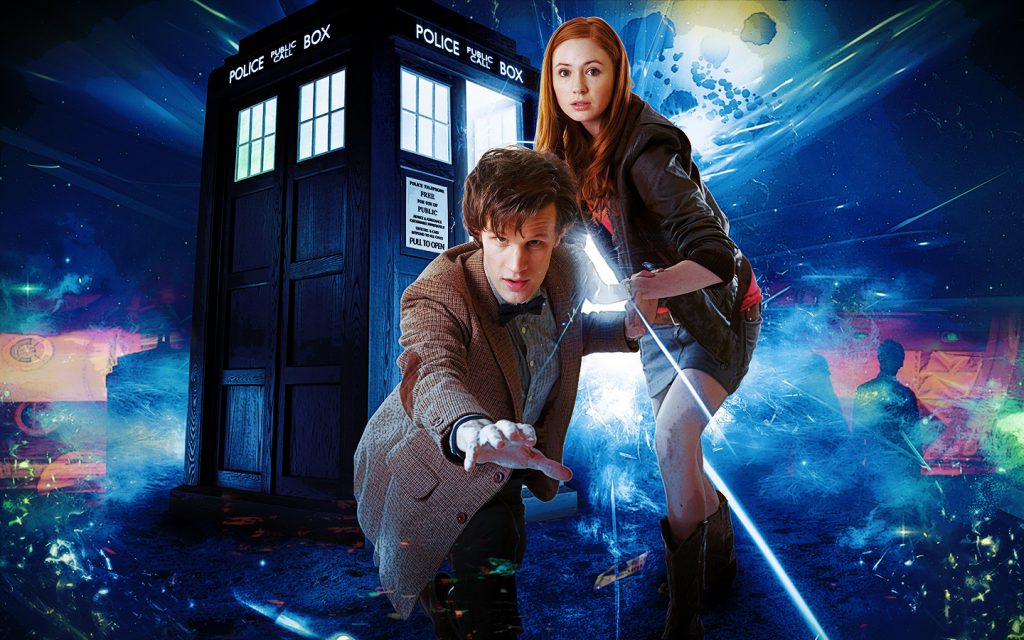
There was no guarantee that this would work. Moffat and the 11th Doctor were following the adventures of David Tennant’s 10th Doctor, who remains one of the show’s most popular. The entire cast and most of the crew were brand-new, taking on one of England’s most sacred legacies. And somehow, against the odds, Series 5 brought the show to previously unheard-of heights.
This is where everything clicks in a near-flawless fashion. Smith’s Doctor was an instant hit, putting him in the conversation among the best iterations of the Time Lord. Amy and Rory made for excellent companions, who grew alongside their Doctor. And the stories were top-notch. Moffat brought an inventive, sharp style to ideas of time-traveling, while also adding to the show’s batch of scary monsters. Series 5 had horror, humor, heroics and heart. If you want to get someone into Doctor Who, point them this way.
Highlights
“The Eleventh Hour” – There isn’t a better Doctor introduction episode to date. Smith’s kinetic, manic energy had him hit the ground running. Having Amy accidentally wait 12 years for The Doctor to return gave her a unique arc among companions. Then there’s the “I Am The Doctor” speech, a mission statement bolstered by magnificent piece of music.
“The Big Bang” – While viewers had previously seen hints of Moffat’s love of mysterious methods for getting out of impossible situations, the Series 5 finale took it to new heights. When the TARDIS explodes, it causes the universe to have never existed. And The Doctor has to solve this problem. The fact that The Doctor takes on this challenge without mass confusion speaks to the power and precision of this series of Doctor Who.
What do you think of our ranking? Agree? Disagree? What are your favorite Doctor Who episodes of the Moffat era? Let us know in the comments and on Twitter and Facebook.
